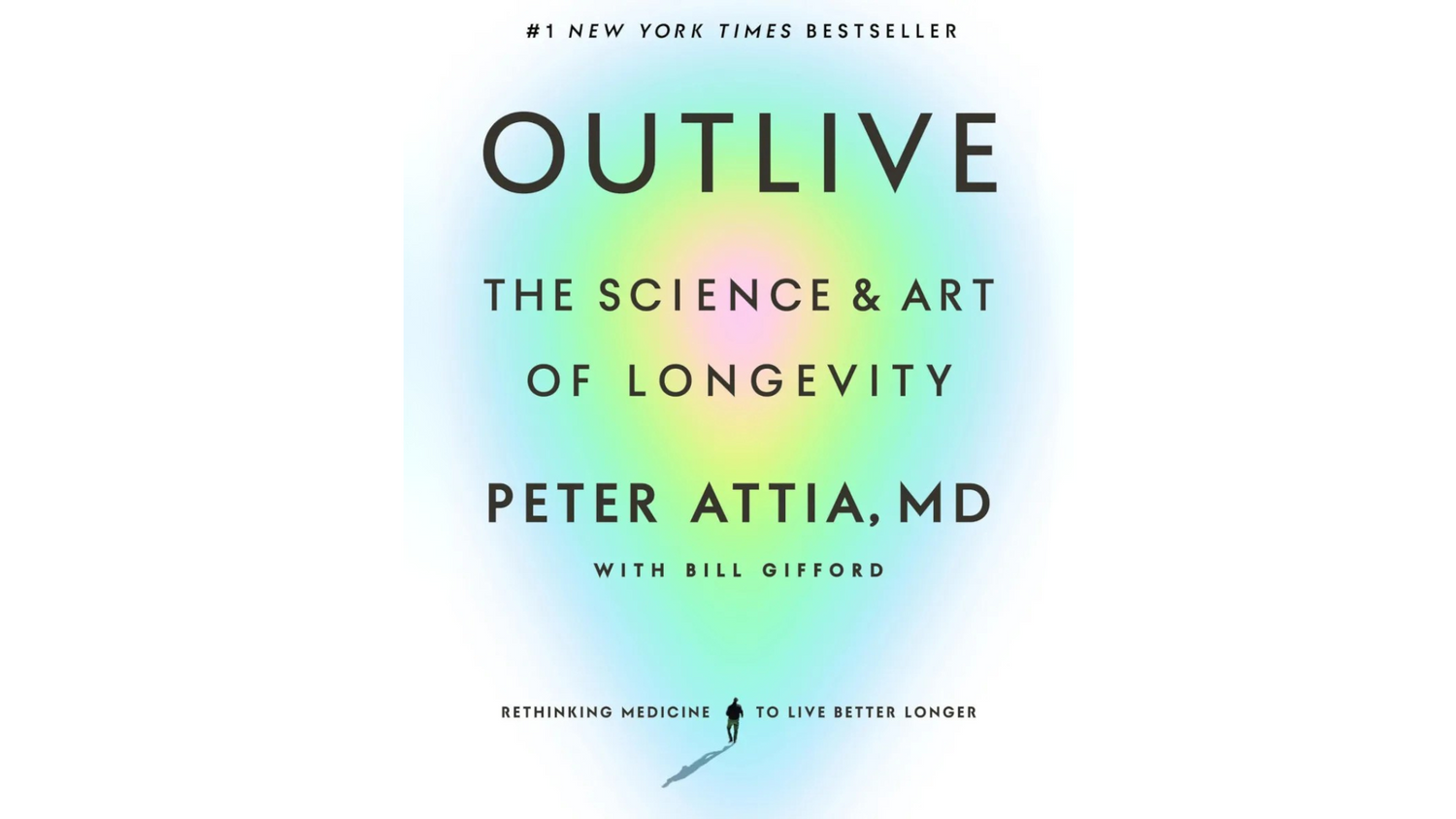Key Takeaways
-
Dr. Peter Attia’s "Outlive" offers a thoughtful and hopeful look at ageing.
-
The book’s most significant strengths? Its advice on exercise, sleep, and proactive care.
-
Some ideas, such as fancy biomarkers and personalised data, may seem out of reach, but the core message remains powerful and practical.
Here’s a bit of a reality check: most Australians today can expect to live well into their 80s—but we’re only spending about 63 of those years in good health. That’s nearly two decades spent managing chronic illness or feeling like life has slowed down.
Enter Dr. Peter Attia’s Outlive, a best-selling book that flips the script on ageing. His big idea? You can’t just live longer—you can live better, sharper, stronger, and more connected. But is it too good to be true?
Let’s dive into what Outlive gets right, where the science backs it up, and where a little caution might be helpful.
A New Kind of Medicine: Catch Problems Before They Start
One of the most prominent themes in Outlive is what Attia calls Medicine 3.0. It’s a significant shift away from the traditional “wait until you’re sick” model to something much more proactive—testing early, tracking closely, and tailoring care to your individual biology.

So, does it hold up?
It really does. Research in major journals shows that approximately half of early deaths are preventable through better screening and behavioural changes (R). Personalised care—based on your genetics or metabolism—is also being used more in diseases like diabetes and cancer.
However, there’s a catch: much of this technology is expensive and not yet incorporated into routine healthcare. So while it’s great advice, it’s not always accessible unless you have the time and means.
Facing the Big Four: Can We Really Prevent Chronic Illness?
Attia introduces us to what he calls “The Four Horsemen”: heart disease, cancer, neurodegenerative conditions, and type 2 diabetes. These are the main culprits behind most of the health struggles we face later in life.
The science says…
He’s absolutely on the money here. Studies show that up to 80% of heart disease and diabetes can be prevented or delayed with lifestyle changes (R, R). And when it comes to dementia, even simple actions like staying active and managing blood pressure can make a real difference (R).
Still, we need to be honest. Not everything is preventable. Genetics and life circumstances play a role, and some health issues just happen. Attia is optimistic—and that’s a good thing—but it’s also okay to acknowledge the limits.
Healthspan Over Lifespan: It’s Not Just About Living Longer
This is one of the book’s most important ideas: it’s not how long you live, it’s how well you live. Attia calls this your healthspan—the years you stay mobile, sharp, and engaged.
Good news?
This concept is also gaining focus in public health. Researchers and doctors alike are pushing to improve quality of life in later years, not just add more candles to the birthday cake (R).
It’s empowering, really. You can take real steps—right now—to stack the odds in your favour.
Exercise: The Closest Thing We’ve Got to a Magic Pill
If there’s one message Attia really wants to drive home, it’s this: movement is medicine. He’s a huge advocate of not just walking more, but also building strength, balance, and cardiovascular fitness.
Does science agree?
Absolutely! Fitness, especially VO2 max and muscle strength, are some of the strongest predictors of healthy ageing and longevity. Strength training reduces your risk of falls, improves brain function, and helps maintain independence (R).
But here’s the thing—you don’t need to train like an athlete. A few brisk walks, some chair exercises, and gentle resistance training can go a long way.
Metabolic Health and Nutrition: Personal, Not Perfect
Attia doesn’t promote a single diet but does suggest aiming for a high-protein, low-sugar, low-glycaemic way of eating—and most importantly, listening to how your body responds.

Backed by research?
Yes. Insulin resistance plays a massive role in everything from diabetes to cognitive decline. High protein helps you preserve muscle as you age, and lowering sugar helps balance blood glucose (R).
However, remember that not all protein is created equal. With longevity in mind, consider increasing your intake of plant-based sources and keeping processed and red meats to a minimum (R).
Don’t Underestimate Sleep: It’s a Longevity Power Tool
Attia puts sleep on the same level as diet and exercise—and he’s right to do so. Good sleep helps your brain, metabolism, mood, and even your immune system.
What does the science say?
Chronic sleep deprivation increases your risk of heart disease, obesity, and even Alzheimer’s (R). Prioritising sleep hygiene—think regular bedtimes, less screen time, cooler rooms—really does help.
And no, you don’t need to track your sleep with an app (although, if it works for you, continue). Sometimes, just listening to your body is enough.
Emotional Health: A Missing Link in Most Longevity Books
Here’s where Outlive stands out. Attia talks openly about his own emotional challenges, including therapy and stress. It’s refreshing—and deeply important.
What’s the evidence?
Mental health is tightly linked to physical health. Chronic stress and loneliness can shorten your life by years, increasing your risk of inflammation, heart disease, and depression (R).
It’s comforting to know that taking care of your mind is just as valuable as hitting the gym. It all matters.
Biomarkers and Personal Data: Helpful, But Not Essential
Attia loves data—lab tests, wearables, and tracking metrics like ApoB and glucose. It’s useful, no doubt, but maybe not for everyone.
What’s useful?
If you’re up for it, these tools can offer early insights into heart risk, inflammation, or blood sugar patterns (R). They’re most helpful when used under the guidance of a qualified health professional.
But if you don’t have access to this tech? Don’t stress. Simple habits still go a long way.
Protecting the Brain: Start Sooner Rather Than Later
Attia sees cognitive decline as the most feared outcome of ageing, and he’s not wrong. Dementia is a major concern for many Australians.
So what helps?
Exercise, good sleep, social engagement, and managing chronic conditions can slow or prevent cognitive decline, especially when started early (R).
Attia offers a great reminder here: what’s good for your heart is also good for your brain.
Final Thoughts: Is Outlive Worth Reading?
Absolutely. Outlive is warm, engaging, and filled with smart science-backed strategies. Dr. Attia manages to take complex ideas and make them surprisingly easy to understand—and inspiring to act on.
Yes, some of the tools and suggestions are advanced. But the heart of the book? Move more. Sleep better. Eat smarter. Stay connected. Think long-term. That’s timeless advice—and it works.
Interested in learning how the longest living people around the world live? Head over to our blog: Want to Live to 100? Longevity Secrets of the Blue Zones Revealed.





















